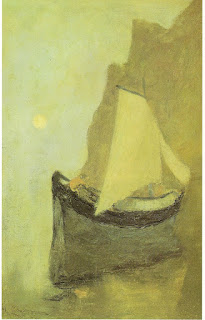 ..
..1.During a banquet a number of speeches praising the god Love are delivered ;
the first speech,by Phaedrus,makes the claim that :
"love between virtuous men and youth is of the highest type",
the chief motive to a noble life.
..
2.Pausanias distinguishes between
A.common Love,which is of the body,and
B.heavenly Love,which is the LOVE OF VIRTUE AND PHILOSOPHY.
..
3.Eryximachus the physician argues that :
"love is the principle of HARMONY which reconciles the hostile elements in the body".
..
4.Aristophanes,satirizing physiological theories of love,maintains that
"the human body was originally round,having four arms,four feet,a head with two faces,..."
and that
"Zeus,to punish men for rebellion,split them in two ;
ever since that time,the halves have sought each other avidly ;
the desire to be reunited is love".
..
5.Agathon praises Love as
"the most beautiful and youngest of the gods,possessed of all the virtues".
..
6.Socrates explains how
"from a love of the beauty of physical objects one can pass to the apprehension of the nature of Beauty itself,the ideal,and thereby share Love's divinity".
..


No comments:
Post a Comment